Food clubs wade in to deal with the hunger crisis in Britain
In the first of a new series reporting from Britain’s most deprived areas, Harriet Marsden is in Cheltenham and Gloucester handing out supplies at some of the thousands of alternatives to food banks that have sprung up across the country

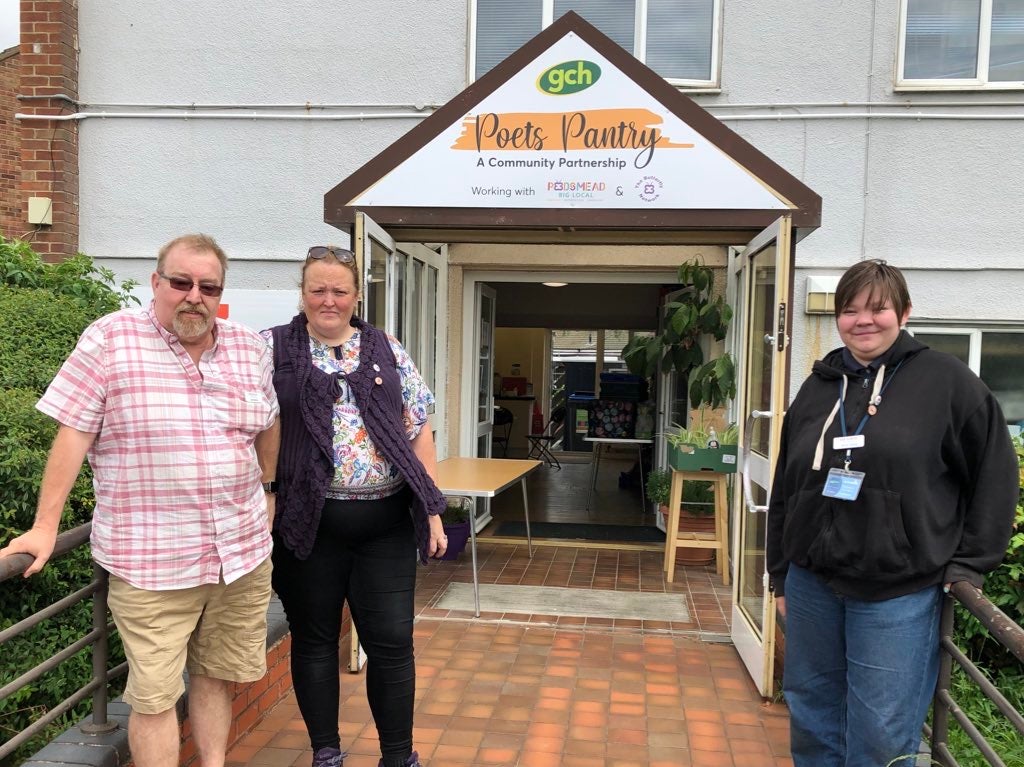
The UK, one of the world’s wealthiest nations, is going hungry – and food poverty is on the rise. About 5 per cent of the population cannot afford enough food to meet their basic needs and avoid hunger. Hospitals are seeing a recurrence of deficiency diseases such as scurvy and rickets due to poor nutrition. New data released just this week by the Food Foundation showed that food insecurity had risen nearly 1 per cent in the past month alone. According to Unicef, the UK ranks fourth in the EU for food poverty, behind Romania, Bulgaria and Lithuania. Meanwhile, our food industry wastes about 3.6 million tonnes a year – most of which is still edible. In many countries, food is acknowledged as a basic human right. So the growing food poverty in one of the most advanced and well-off countries means that something has gone wrong.
The problem is, we don’t know how wrong. Most of the data related to hunger is based on the use of food banks and meal vouchers. The Trussell Trust, which opened its first UK food bank in 2000, now operates more than 1,300 banks, and there are also more than 1,000 independent versions.
More and more people are relying on alternatives to food banks. All over the country, independent services such as food clubs, citizens’ supermarkets, community pantries, and food-waste redistribution services are popping up to bridge the gap between the ‘just-about-managing’ and the emergency, means-tested cases. Most alternatives are not means-tested, most give away groceries rather than prepared meals, and crucially, many charge a small weekly fee. Sharon Goodyer is the director of Our Kitchen and a recent recipient of the government’s Point of Light awards scheme for her weekly pandemic deliveries of 2,000 free food bags. She says: “People don’t want handouts, they want dignity, they want to feel empowered.”
In my time as journalist-at-large, supported by the charity Local Trust, I’ve travelled to some of the most deprived areas in the country and seen first-hand the crisis of food poverty – and the growing reliance on food-bank alternatives. Just this month, my local community centre launched a food pantry. Community Shop, which has eight stores across some of the UK’s most deprived areas and provides heavily discounted food to anyone on benefits, noted a 40 per cent increase in demand for services in the past two years.
Many people I’ve spoken to think accessing a food bank is off-putting, intrusive or even shameful: a sign of defeat. Most food banks also require referrals, and people are reluctant for their struggles to go on record, or even to admit that they need help. Several have told me they don’t want “handouts”.
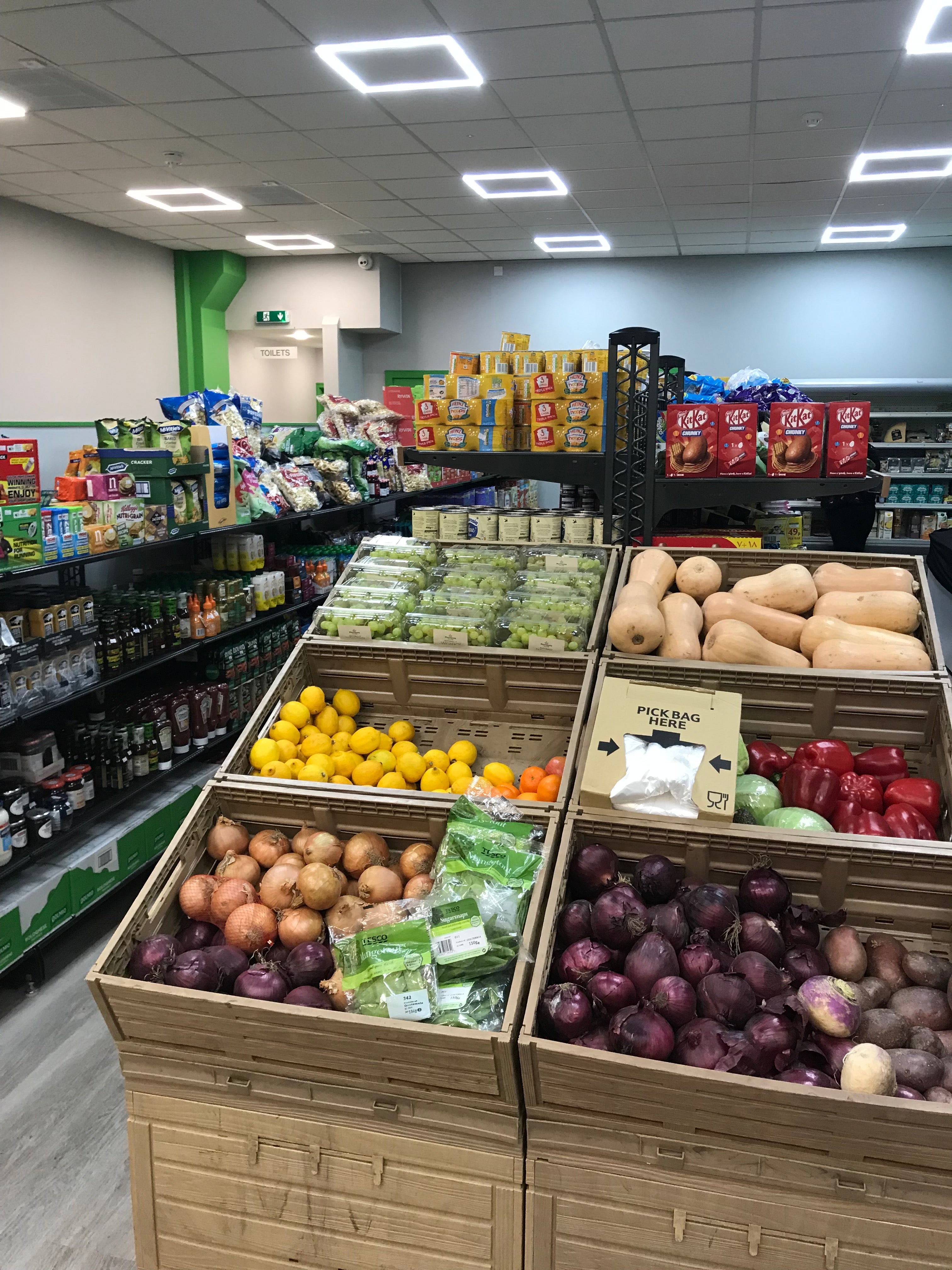
Garry Lemon, the director of policy and research at the Trussell Trust, said: “Compared with five years ago, the need for food banks in our network has increased by 128 per cent. These figures are just the tip of the iceberg, as many people will have been helped by other community groups.”
Many food-bank alternatives are also a boon for the environment, and are helping to save some of the nearly 3.6 million tonnes the UK food industry wastes each year. Approved Food, the UK’s largest online-only retailer of short-dated food and drink, has sold more than 25,000 tonnes of usable food. In Birkenhead and Wirral, one Feeding Britain community cafe alone is reusing 85 tonnes of food a year that would have gone to waste. The environment and psychological impact is huge. So when food-bank alternatives reframe “receiving help” as “helping the environment”, communities feel proud rather than stigmatised.
In a housing estate known as Podsmead, just south of Gloucester city centre, sits Poet’s Pantry. It’s a small but well-lit cafe, adorned with plants and green bags for life. Each bag is full of food, which is handed out to residents in need (and more often than not, to their dogs).
Food banks have all that negativity around them that, obviously, you’re poor if you need to use a food bank, and so on. So we focus on the fact that we’ve been given this food and we want to distribute it to people
Podsmead is a small ward of about 3,000 residents – with 1,500 households based around a central green. But there’s only one tiny corner shop within walking distance. Without a car, people have no access to fresh fruit and vegetables. It’s also one of the most deprived areas of England. In 2012, the National Lottery Community fund gave Podsmead and 149 other deprived spots at least £1m to fund community-run projects. The Big Local programme, now managed by Local Trust charity, is the biggest non-state intervention in UK history.
The Poet’s Pantry is a food distribution hub – not a food bank – run by Podsmead Big Local since before the pandemic. FareShare, the UK’s network of food redistribution services, picks up produce from the supermarkets and drops it off each week. For just £1, locals get a full bag of food. Each week, 45 people – and their dogs – come for food and a chat.
Les Jevins, head of Podsmead Big Local, says there was a real need to give families access to decent quality, nutritious food: “It’s based on preventing food waste, rather than people coming because they’re desperate for food, so that people who come don’t feel stigmatised.
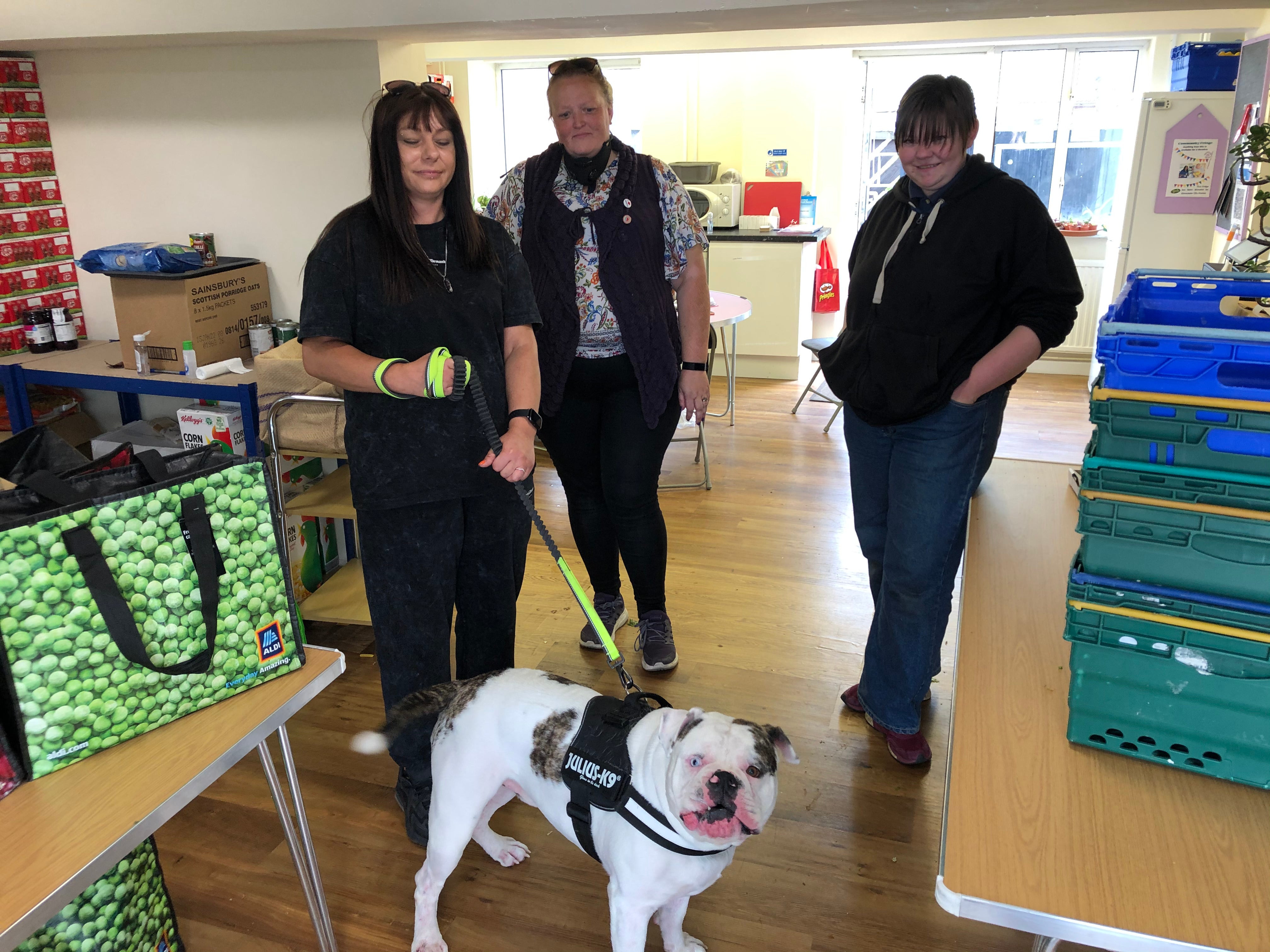
“Food banks have all that negativity around them that, obviously, you're poor if you need to use a food bank, and so on. So we focus on the fact that we've been given this food and we want to distribute it to people to stop it from going into landfill.”
Jevins adds: “It’s more approachable than a food bank, and because we focus on trying to prevent food wastage, we're trying to encourage people to see it as something they can connect with, that they're helping other people.”
Annemarie, who’s lived in Podsmead since she was 13, loves the fact that the volunteers spoil her four dogs. Not far from Podsmead, on a windy football ground just outside of Cheltenham, home of the Saracens FC, I stand behind a long table, handing out bags of groceries: fruit, vegetables, all perfectly fresh, that would otherwise have gone to waste.
I’m helping out in a #ReduceWaste free food project in the ‘Big Local’ area known as St. Peter’s and the Moors, which spans the poorest parts of Cheltenham. Kelly Patterson, the project coordinator, gets the produce at the end of each day from local supermarkets, and hands it out for free. “Anybody can come down,” she says. “It’s not about if you’re in need, it’s just if you can make use of it and so it doesn’t go in the bin.”
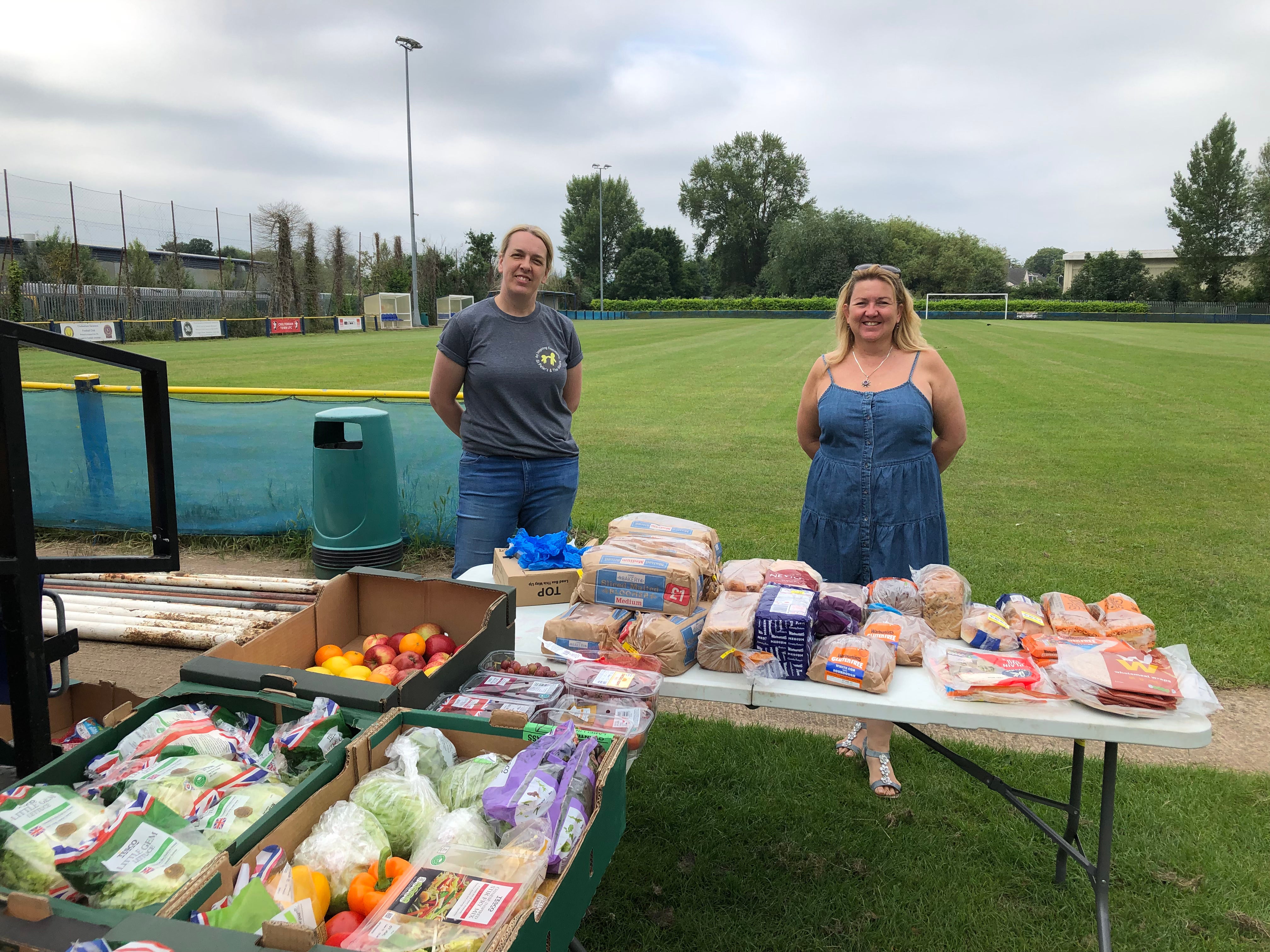
The twice-weekly service began in September 2019, but responded to the pandemic by increasing services throughout lockdown, including deliveries. Patterson worked seven days a week throughout the first year of the pandemic. She greets almost every resident by name.
Food-bank alternatives are also helping to combat loneliness and isolation around the country. As Andrew Forsey, the national director of the charity Feeding Britain explains: “What we seek to do with each of our projects is to run an onsite cafe, or community garden, or some kind of social activity, because as well as helping people stretch their budgets further, we also want them to feel part of a community, part of a club, whereby any isolation or loneliness can be countered … We find this kind of project busts all sorts of limits that poverty so cruelly places on people's lives, and it does so without that sense of crisis or stigma that perhaps comes with other forms of food.”
On that Cheltenham football field, after locals picked up their groceries, we sat down on rickety metal tables for tea and cake. I spoke to Donald and Anna, who come every single week, while dogs nipped between our legs.
Anna, an unpaid carer for her husband, says that as well as the fresh produce, what she enjoys most is the company. “I like it being called Reduce Waste [rather than food aid]. I think what I like about it is that it’s not a stigma. I think there’s a bit of a stigma to a food bank. There shouldn’t be, but there is.”
Experts all agree that the rising cost of living, real-time falling wages, benefit cuts and the ongoing fuel crisis are a perfect storm to worsen food poverty in the coming months
Don is excited to tell me that he’s tracked down a steamer to make better use of his vegetables. “They say in their newsletter, how many tonnes of waste they saved, and it is a waste when people like us haven't got much money. It’s better to eat it than to chuck it into the landfill.”
Nothing is wasted at the Saracens FC – even the leftover salad goes to the local animal shelter, for the guinea pigs.
We may not know the full scale of food poverty in Britain, but we do know that the pandemic has greatly exacerbated it. Feeding Britain has developed 100 alternative food projects around the country, such as pantries and food clubs, which help 14,000 households per year, as well as clubs to feed children in school holidays. Their Covid-19 Emergency Response programme distributed meals to 2.2 million low-income people and families.
Forsey tells The Independent: “We’ve seen a real hastening of the trends that we were picking up on before the pandemic – a toxic combination of low income and isolation that was particularly afflicting disabled households. Household food budgets were diminishing rapidly … but until fairly recently, the only options seemed to be a food bank for households in that situation. And what we’ve been trying to do is offer alternatives.”
Uptake data is skewed by the increasing number of food banks, but the amount of emergency food parcels handed out has skyrocketed. The Trussell Trust reported an almost 50 per cent increase in 2020 compared with 2019, and the Independent Food Aid Network noted a rise of more than 60 per cent. Meanwhile, independent food bank use rose nearly 80 per cent. In the six months from April to September last year, the Trussell Trust network handed out more than 5,100 emergency food parcels every single day. That’s nearly a million. All available data showed a worrying increase in emergency parcels going to children – at double the rate for adults.
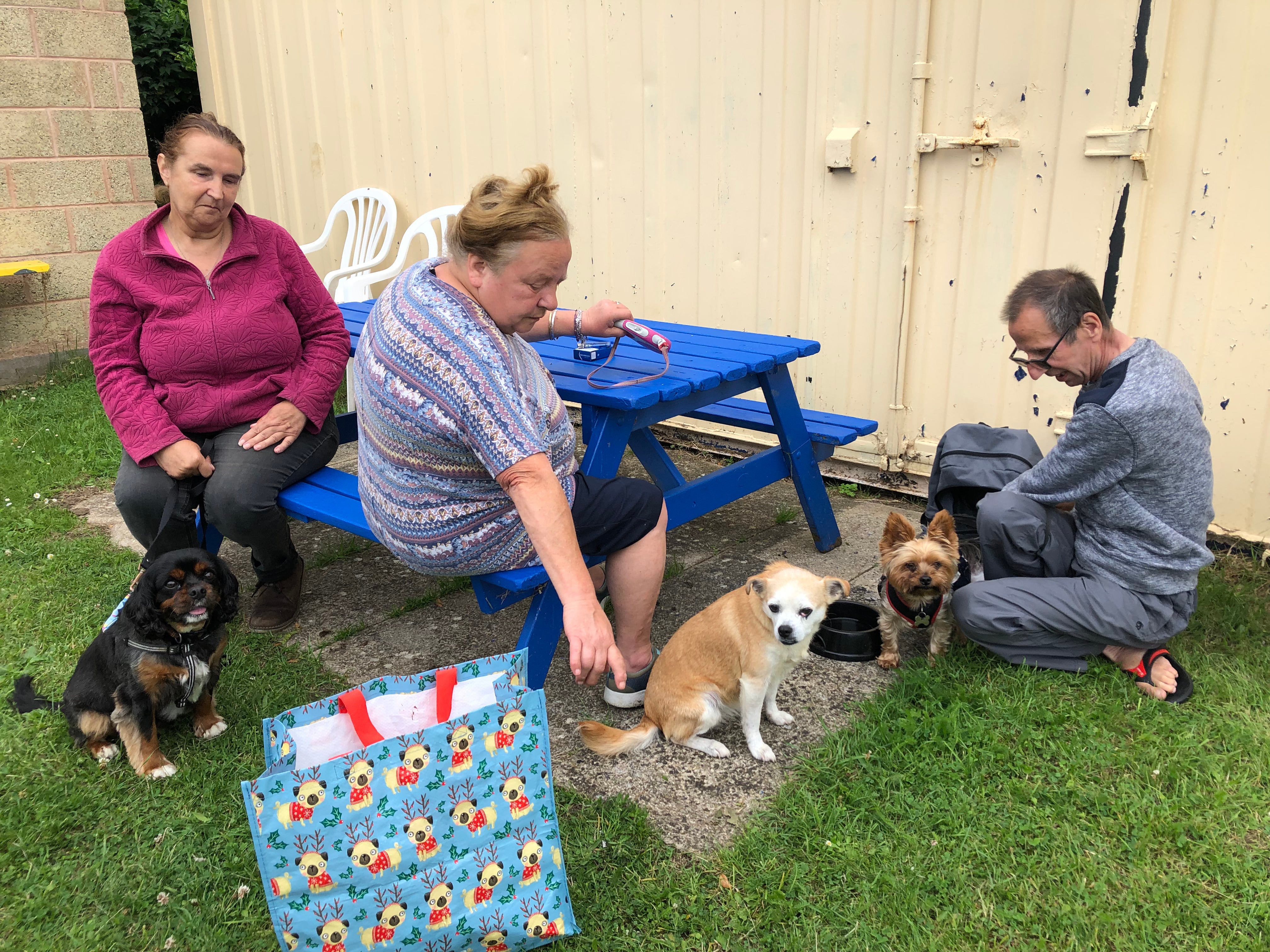
Forsey explains that Feeding Britain is trying to fill the gap between supermarkets and food banks by offering low-cost or affordable food for those “who are just about keeping their heads above water. Once people need to use a food bank, they feel as though they have hit rock bottom, that they've had to admit defeat. And with that comes this overwhelming sense of shame, and embarrassment or humiliation. And so what we've tried to do in developing these alternatives, is prevent people from hitting rock bottom or from descending into crisis … It doesn’t carry that sense of emergency or crisis.”
These alternatives in no way detract from the necessity of food banks, nor the hard work of the staff volunteers, says Forsey, “but just that fact of having to accept the food bank voucher and feeling as though one has hit rock bottom as a result? That to us wasn't an acceptable status quo.”
While food banks cater for the most urgent needs, food-bank alternatives help prevent families reaching that point – people who are perhaps just one large bill away from crisis.
For almost one in every two children to be poor in 21st-century Britain is not just a disgrace, but a social calamity and an economic disaster all rolled into one
When it comes to hunger, there is far less regional diversity than you might expect. Food-bank alternatives are operating all over the country, both urban and rural, even in less deprived areas. In Forsey’s words: “In that sense, we really are all in it together.”
Lynne Kennedy, food poverty expert and professor of public health and nutrition at Zayed University UAE, tells The Independent: “Since Covid emerged in 2019, following on the back of Brexit, we have seen dramatic and cumulative increases in food poverty and the inability of many to afford adequate food to meet their basic nutritional requirements.
“Emergency food initiatives should only ever be temporary; a sticking plaster. However, our recent research shows that agencies and professionals working to address food poverty in local communities are seeing more and more families accessing services, while existing users are also requiring repeat support. The capacity of the public health and the public health nutrition workforce to support agencies tackling public health has also declined in the past decade.”
A landmark report from last September, which Professor Kennedy co-authored with colleagues at Future of Public Health Nutrition, said that even before the pandemic Britain was “severely food insecure” – the highest reported level in Europe. Food supply chain issues, bumpy Brexit negotiations and school closures were already wreaking havoc on food access. The £20 cut to Universal Credit, the fuel crisis and the skyrocketing cost of living will only make things worse.
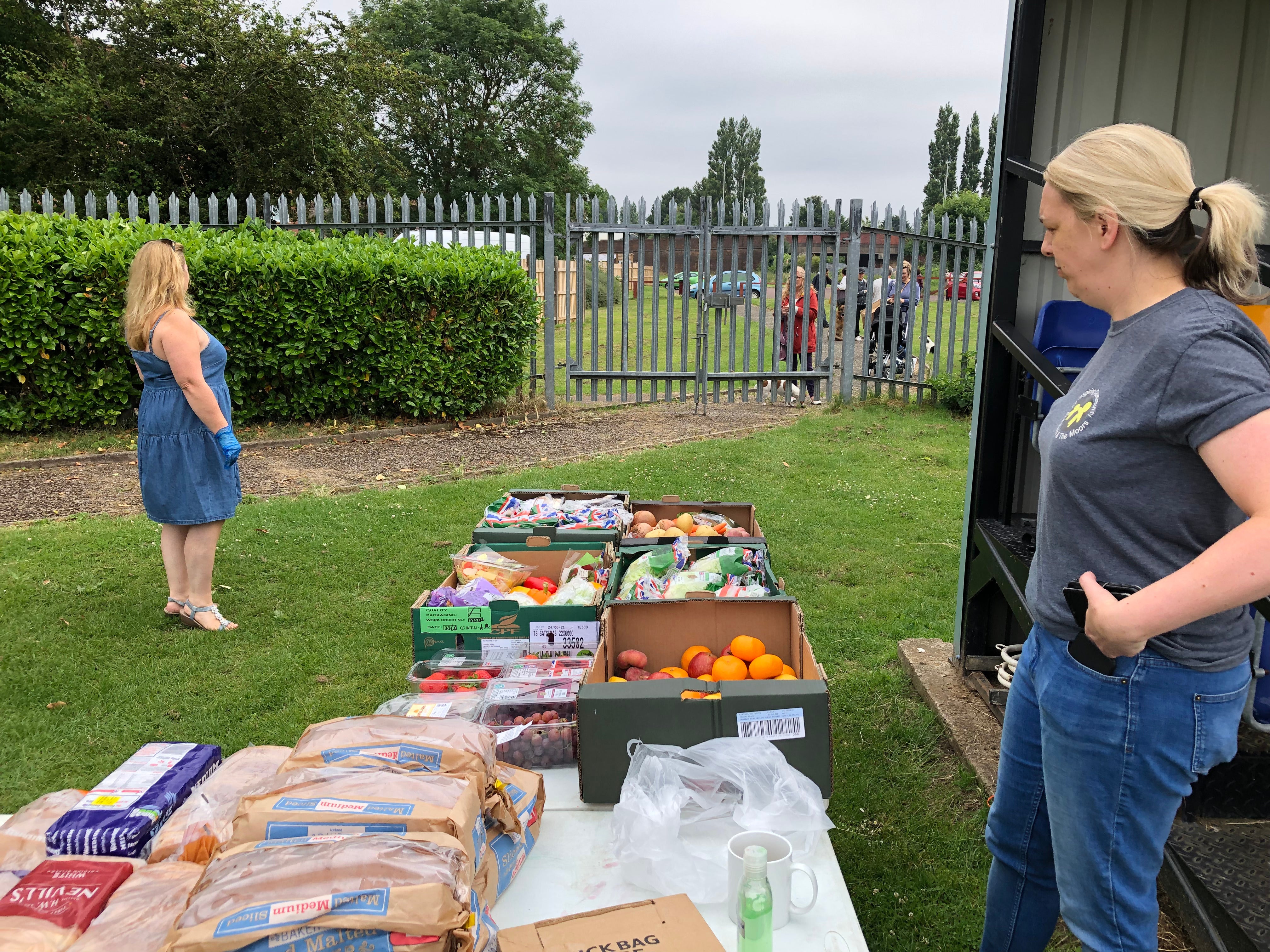
After the financial crash of 2008, austerity measures in the shape of budget cuts – rather than tax increases – significantly reduced funding for social care. Between 2009 and 2018, there was a nearly 40 per cent cut to local government budgets. Public health nutrition, like Age UK’s Meals on Wheels and free school meals to all children was reduced to all but essential services and most vulnerable groups. In 2019, the UN Special Rapporteur on Extreme Poverty and Human Rights, Philip Alston, concluded that growing food poverty was a result of political decisions. “For almost one in every two children to be poor in 21st-century Britain is not just a disgrace, but a social calamity and an economic disaster all rolled into one.” Elsewhere in Europe, the report found the impact of austerity measures to be less severe.
Many of the large post-war housing estates I’ve visited over the past few months could be described as “food deserts”. There might be a small local shop, like a Premier, but the nearest supermarket or greengrocers might be a 15 to 20-minute drive away. For those on low or insecure incomes, facing disability or rising costs in fuel, this can prove insurmountable. Dr Kingsley Purdam, expert in public services and nutrition at the University of Manchester, explains: “Local shops provide an essential service but they are often more expensive, with less fresh produce. This only adds to the food costs faced by those who rely on them. Not everyone has a car or can afford to bulk-buy shopping.”
Visiting a food bank might seem daunting, but people will always find a warm welcome in a safe environment, a listening ear from trained volunteers, and emergency food and support
Professor Kennedy adds: “The important role of structural factors such as close access to appropriate shopping facilities within neighbourhoods, regulation of the nutritional quality of foods at the cheaper or ‘affordable’ range of products sold by the major retailers and revisiting the notion of a food element within welfare benefits is ignored.”
Experts all agree that the rising cost of living, real-time falling wages, benefit cuts and ongoing fuel crisis are a perfect storm to worsen food poverty in the coming months. The potential rise in UK inflation in the spring will hit household budgets even harder.
Meanwhile, the cost of everyday items in supermarkets increased in January by almost twice what would normally be expected, according to data from Approved Food. Andy Needham, the managing director, said: “Shortages and bottlenecks in goods have contributed to the highest food prices we have seen in decades. The impact of inflation is going to be felt by everyone as consumers battle a cost-of-living crisis.
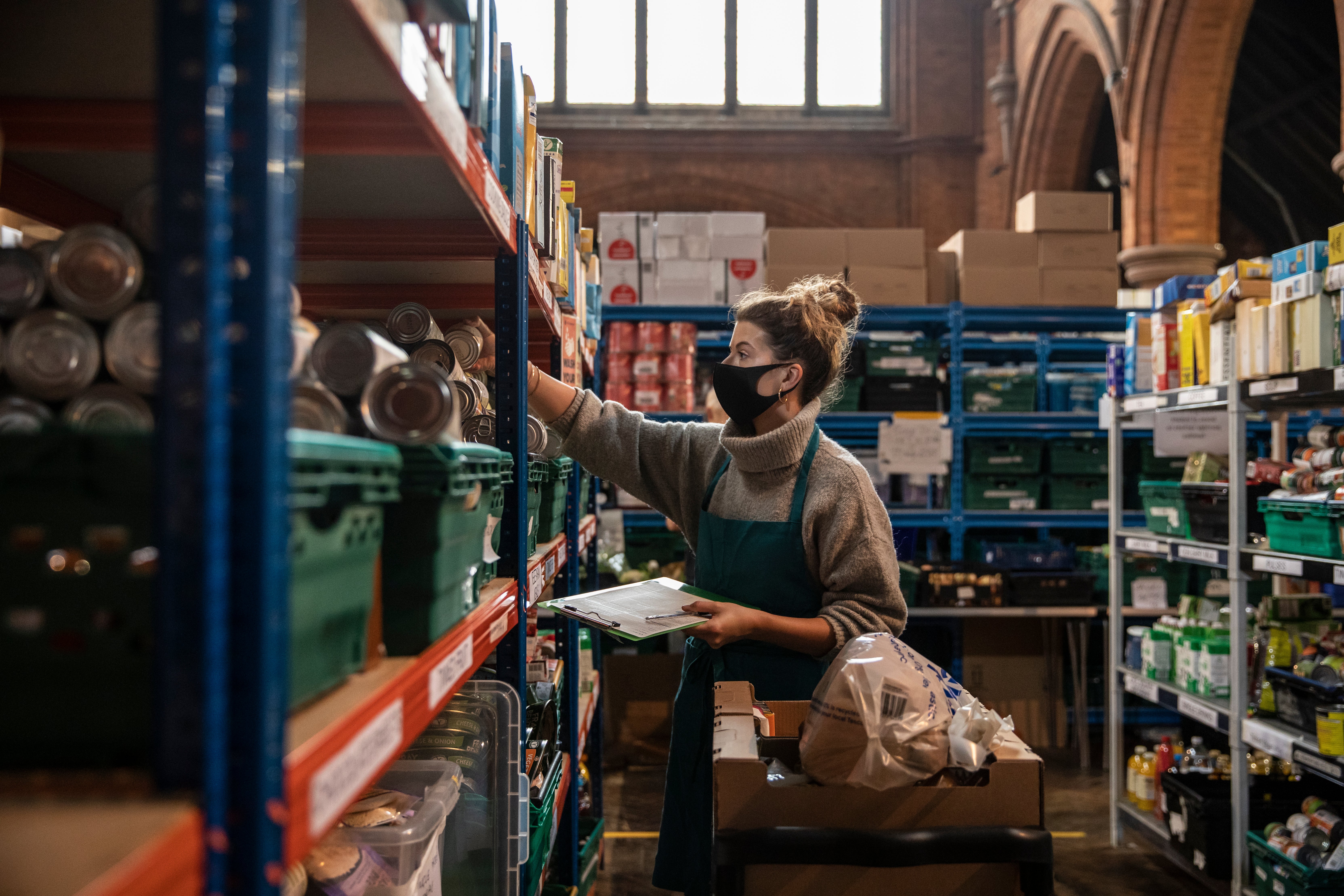
Forsey explains that Feeding Britain is also seeing “a rather disturbing rapid increase in need in those communities where lots of residents use prepaid metres of the gas and electricity … people access our food projects both to save money on food but increasingly to draw on the help we offer for emergency metre credit too”.
The government is considering a National Food Strategy to tackle the issue, while eradicating food poverty all together is still one the UN’s Sustainable Development goals. There are also calls for a Minister for Hunger, and for the right to food security to be enshrined in UK law. The Food Foundation and other charities have also called on the government to make food insecurity part of the new levelling-up agenda.

At the moment, measures tackling food poverty around the country are fractured, uncoordinated and inconsistent. The 2021 report describes a “postcode lottery” of uneven distribution and access to community hubs. A national, coherent system fully funded by the government, reconnected with communities, would stand a better chance. The current labelling system is confusing and could allow for more flexibility with use-by dates.
All the evidence suggests that those experiencing poverty are competent in balancing a limited budget, but for some, mounting debt and high interest rates often leave no money to meet basic requirements. “While charities and third-sector providers, including food banks, may offer help in emergencies, the cycle of debt is never-ending,” says Professor Kennedy. “Action aimed at helping people out of debt, aimed at providing secure employment and fair wages, is likely to be more helpful.”
Trussell Trust’s Lemon said: “Food banks in our network welcome and support everyone who is referred to them, always treating them with respect and upholding their dignity. Visiting a food bank might seem daunting, but people will always find a warm welcome in a safe environment, a listening ear from trained volunteers and emergency food and support.”
“Everyone in the UK should be able to afford the essentials in life – but food banks in our network continue to see more and more people facing impossible decisions like whether to put food on the table or heat their homes. This is not right.”
Food bank alternatives are helping to bridge the gap between need and provision, and are seen by many as a paragon of community spirit. But the burden, on volunteers and communities themselves in need, is increasing far too rapidly. The situation, says Professor Kennedy, “is unsustainable”.
Harriet Marsden is a freelance writer and recipient of the Local Trust's journalist-at-large fellowship, reporting from England's most deprived communities
Join our commenting forum
Join thought-provoking conversations, follow other Independent readers and see their replies
Comments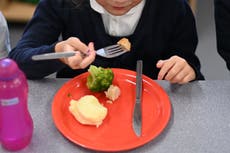

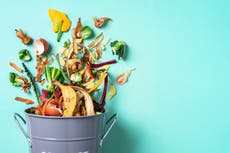

Bookmark popover
Removed from bookmarks